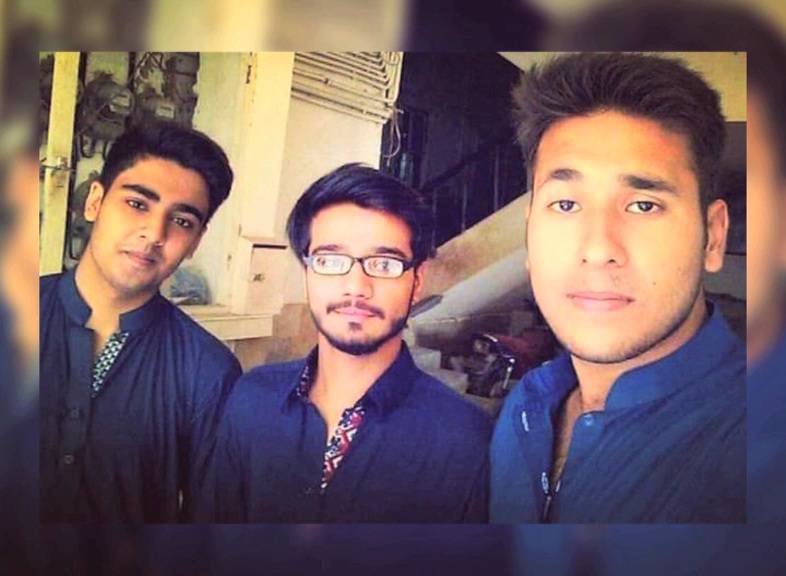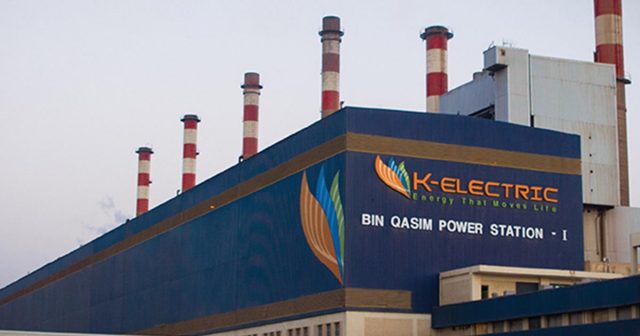
KARACHI: The recent rains left dozens of families in Karachi devastated as they lost their loved ones due to electrocution. Corporate irresponsibility, weak enforcement of safety standards and collapsed regulation have compounded this situation. Worse there is no accountability of those who are responsible for creating such public hazards.
The MET data suggest that the first two rain spell were 165 MM and 200 MM – more than the regular average monsoon rain in the city – but the number was enough to take scores of lives, leaving households devastated for the rest of their lives.
Death has united many in grief – a poor rickshaw driver and three close friends, a sole breadwinner and an only child of a middle aged couple, son of a french fries’ seller and an ACCA student from the upscale Defence area.
“My world has turned upside down. The death of my nine-year-old Ahraf has left me with nothing,” said Jibran, a small local vendor who lives in a modest two-room home in an impoverished area of city’s district Malir.
On the evening of July 28th, Ahraf, rushed to rescue his friend Umar who was being electrocuted through a street poll in the rainwater moments after electricity was restored in the area. The heroic attempt went in vain as both the children lost their lives. Dozens of people met the same fate. A few of the horrific killings were recoded on video and shared via WhatsApp. They horrified everyone as the images were brutal and heart-wrenching.
The National Electric Power Regulatory Authority (NEPRA) – after a 15-day investigation holds the power utility ‘responsible’ behind 19 out of 35 electrocution cases.
 “The NEPRA Authority has decided to initiate legal proceedings against K-Electric under relevant provisions of NEPRA Act 1997. In this regard, show cause notice has been issued to K-Electric,” said its press release.
“The NEPRA Authority has decided to initiate legal proceedings against K-Electric under relevant provisions of NEPRA Act 1997. In this regard, show cause notice has been issued to K-Electric,” said its press release.
Meanwhile, as many as 14 families have filed an FIR against K-Electric – blaming the power utility company to be behind the killings of their beloved.
The FIRs have nominated K-Electric’s owner Arif Naqvi, CEO Moonis Alvi and Chairman Ikram Sehgal and local site engineers under Section 322 and 34. The former is a non-bailable offence.
“It has been over a month since the first FIR was filed against K-Electric representatives,” The police are mandated to present Challan (charge sheet) within 14 days – no such action is taken yet,” said Nasir Mehmood, a counsel who is part of the 10-member joint legal committee assisting the families of the victim.
He claimed that on the behest of K-Electric, local goons are pressurizing the poor families to take back the case. The K-Electric denies the charge, and calls it ‘baseless allegation’.
The legal committee is led by the head of a relief organization, Jafaria Disaster Cell – Zafar Abbas – who claims that more than 65 people have lost their lives due to electrocution in the monsoon rainfall.
With back to back viral videos on social media and protests all over the city against K-Electric along with the families of the deceased, Abbas has gained massive following in the city. The social activist is being seen on the social media as a lone voice fighting the corporate giant.
Abbas has repeatedly called the power utility company, ‘a modern day mafia recklessly killing people’; he claims that the company’s malfunctions and criminal negligence is brushed under the carpet due to its ‘close connections with powerful quarters of the country’.
Abbas has announced to take the police authorities and the K-Electric to the Supreme Court of Pakistan as he claims that the provincial police authorities have taken no action yet over the FIRs filed by the relatives.
The K-Electric took an interim stay order till September 16, 2019 against Zafar Abbas from the Sindh High Court. The activist is barred by law to issue any comment on K-Electric in media.
 Meanwhile, the power utility company has maintained that ‘majority of the incidents either occurred inside homes or due to non-KE infrastructure such as kundas and hanging lights’, adding that “a large portion of Karachi is unplanned and includes encroachments in different areas which are often also infested with kundas. KE identifies encroachments around power infrastructure across its network to concerned authorities for immediate action and issues notices, as these create a dangerous situation by compromising the safety protocols and procedures.”
Meanwhile, the power utility company has maintained that ‘majority of the incidents either occurred inside homes or due to non-KE infrastructure such as kundas and hanging lights’, adding that “a large portion of Karachi is unplanned and includes encroachments in different areas which are often also infested with kundas. KE identifies encroachments around power infrastructure across its network to concerned authorities for immediate action and issues notices, as these create a dangerous situation by compromising the safety protocols and procedures.”
Going by the observations of Supreme Court judges, it seems that the highest court doesn’t believe in the KE’s statement. A three-member bench of Supreme Court of Pakistan, including Justice Gulzar Ahmed, Justice Faisal Arab and Justice Sajjad Ali Shah, has already expressed its dismay over the performance of K-Electric in the last rain spell.
"Why were the electricity providers not grabbed by the collar over these many deaths?" Justice Gulzar Ahmed asked a top Sindh law officer during a hearing in Karachi registry. “K-Electric makes a profit of Rs50 million in exchanges for five paisas,” he said. "K-Electric did not deliver anything," Justice Ahmed remarked, regretting that the entire infrastructure of the megacity had been "ruined".
Justice Gulzar has reportedly in a separate hearing has reportedly said that: “Whatever K-Electric wanted to earn, it has earned it. They will skin Karachi-iites alive if afforded the opportunity.” The judge’s most alarming observation was that the company also sold all the copper wires and replaced them with aluminum cables.
Hammad Khan Sherwani, a former partner of K-Electric, believes that the deaths were due to the lack of copper wires on the transmission lines in the city. The politician, who claims to be a close associate of former Sindh Home Minister Zulfiqar Mirza, was outsourced by the K-Electric for maintenance of power lines, check theft and recover bills for Gadap area on 80-20 revenue share agreement for a period of 10 years.
The former K-Electric chairman Tabish Gauhar in an interview to Express Tribune in 2014 revealed that with the outsourcing of Gadap ‘almost 65% of the billed amount was recovered’. Sherwani said that he is witness of seeing copper wires worth billions of rupees being taken off from the area.
“We have lived all our life in the city. Why any such massive electrocution wasn’t witnessed before. There is only reason for it, their replaced aluminum wires weakens in rain water, they either hit the polls or water – causing electrocuted death to the nearby,” he alleged.
The KE, in its official response, maintained that the copper wires were replaced by the Aerial Bundled Cables (ABC) wires installation was launched as part of the solution to the energy challenges Karachi face.
“ABC are overhead power lines consisting of a number of insulated wires bundled tightly together. It is a safer and more reliable way of conducting electricity. Most importantly, ABC prevents power theft through the use of kundas/hooks, which is a major safety hazard as well as the leading cause of faults in the system,” KE DGM Communication said in a statement.
But for Jibran, no NEPRA investigation matters. He considers that in front of the influential corporate entity, no regulatory authority or even courts can give him justice. “Our world has ended. One of my biggest fears in life was getting attached to something that wasn’t destined to be mine. What can be more tragic that my worst fear turned into reality,” he said while sobbing.
The MET data suggest that the first two rain spell were 165 MM and 200 MM – more than the regular average monsoon rain in the city – but the number was enough to take scores of lives, leaving households devastated for the rest of their lives.
Death has united many in grief – a poor rickshaw driver and three close friends, a sole breadwinner and an only child of a middle aged couple, son of a french fries’ seller and an ACCA student from the upscale Defence area.
“My world has turned upside down. The death of my nine-year-old Ahraf has left me with nothing,” said Jibran, a small local vendor who lives in a modest two-room home in an impoverished area of city’s district Malir.
On the evening of July 28th, Ahraf, rushed to rescue his friend Umar who was being electrocuted through a street poll in the rainwater moments after electricity was restored in the area. The heroic attempt went in vain as both the children lost their lives. Dozens of people met the same fate. A few of the horrific killings were recoded on video and shared via WhatsApp. They horrified everyone as the images were brutal and heart-wrenching.
The National Electric Power Regulatory Authority (NEPRA) – after a 15-day investigation holds the power utility ‘responsible’ behind 19 out of 35 electrocution cases.
 “The NEPRA Authority has decided to initiate legal proceedings against K-Electric under relevant provisions of NEPRA Act 1997. In this regard, show cause notice has been issued to K-Electric,” said its press release.
“The NEPRA Authority has decided to initiate legal proceedings against K-Electric under relevant provisions of NEPRA Act 1997. In this regard, show cause notice has been issued to K-Electric,” said its press release.Meanwhile, as many as 14 families have filed an FIR against K-Electric – blaming the power utility company to be behind the killings of their beloved.
The FIRs have nominated K-Electric’s owner Arif Naqvi, CEO Moonis Alvi and Chairman Ikram Sehgal and local site engineers under Section 322 and 34. The former is a non-bailable offence.
“It has been over a month since the first FIR was filed against K-Electric representatives,” The police are mandated to present Challan (charge sheet) within 14 days – no such action is taken yet,” said Nasir Mehmood, a counsel who is part of the 10-member joint legal committee assisting the families of the victim.
He claimed that on the behest of K-Electric, local goons are pressurizing the poor families to take back the case. The K-Electric denies the charge, and calls it ‘baseless allegation’.
The legal committee is led by the head of a relief organization, Jafaria Disaster Cell – Zafar Abbas – who claims that more than 65 people have lost their lives due to electrocution in the monsoon rainfall.
With back to back viral videos on social media and protests all over the city against K-Electric along with the families of the deceased, Abbas has gained massive following in the city. The social activist is being seen on the social media as a lone voice fighting the corporate giant.
Abbas has repeatedly called the power utility company, ‘a modern day mafia recklessly killing people’; he claims that the company’s malfunctions and criminal negligence is brushed under the carpet due to its ‘close connections with powerful quarters of the country’.
“All deaths in the last rainfall are because of electrocution. No roofs and trees collapsed on the people. Were those children of lesser God? Can this even be expected in Lahore or Islamabad,” said the charged activist in his interaction with this scribe. “The law calls for safe distribution of electricity. But there is no one here who can question K-Electric that if they are making billions in profit why can’t they ensure safe distribution of electricity; how many more coffins the city has to give shoulder to because of their apathy.”
Abbas has announced to take the police authorities and the K-Electric to the Supreme Court of Pakistan as he claims that the provincial police authorities have taken no action yet over the FIRs filed by the relatives.
The K-Electric took an interim stay order till September 16, 2019 against Zafar Abbas from the Sindh High Court. The activist is barred by law to issue any comment on K-Electric in media.
 Meanwhile, the power utility company has maintained that ‘majority of the incidents either occurred inside homes or due to non-KE infrastructure such as kundas and hanging lights’, adding that “a large portion of Karachi is unplanned and includes encroachments in different areas which are often also infested with kundas. KE identifies encroachments around power infrastructure across its network to concerned authorities for immediate action and issues notices, as these create a dangerous situation by compromising the safety protocols and procedures.”
Meanwhile, the power utility company has maintained that ‘majority of the incidents either occurred inside homes or due to non-KE infrastructure such as kundas and hanging lights’, adding that “a large portion of Karachi is unplanned and includes encroachments in different areas which are often also infested with kundas. KE identifies encroachments around power infrastructure across its network to concerned authorities for immediate action and issues notices, as these create a dangerous situation by compromising the safety protocols and procedures.”Going by the observations of Supreme Court judges, it seems that the highest court doesn’t believe in the KE’s statement. A three-member bench of Supreme Court of Pakistan, including Justice Gulzar Ahmed, Justice Faisal Arab and Justice Sajjad Ali Shah, has already expressed its dismay over the performance of K-Electric in the last rain spell.
"Why were the electricity providers not grabbed by the collar over these many deaths?" Justice Gulzar Ahmed asked a top Sindh law officer during a hearing in Karachi registry. “K-Electric makes a profit of Rs50 million in exchanges for five paisas,” he said. "K-Electric did not deliver anything," Justice Ahmed remarked, regretting that the entire infrastructure of the megacity had been "ruined".
Justice Gulzar has reportedly in a separate hearing has reportedly said that: “Whatever K-Electric wanted to earn, it has earned it. They will skin Karachi-iites alive if afforded the opportunity.” The judge’s most alarming observation was that the company also sold all the copper wires and replaced them with aluminum cables.
Hammad Khan Sherwani, a former partner of K-Electric, believes that the deaths were due to the lack of copper wires on the transmission lines in the city. The politician, who claims to be a close associate of former Sindh Home Minister Zulfiqar Mirza, was outsourced by the K-Electric for maintenance of power lines, check theft and recover bills for Gadap area on 80-20 revenue share agreement for a period of 10 years.
The former K-Electric chairman Tabish Gauhar in an interview to Express Tribune in 2014 revealed that with the outsourcing of Gadap ‘almost 65% of the billed amount was recovered’. Sherwani said that he is witness of seeing copper wires worth billions of rupees being taken off from the area.
“We have lived all our life in the city. Why any such massive electrocution wasn’t witnessed before. There is only reason for it, their replaced aluminum wires weakens in rain water, they either hit the polls or water – causing electrocuted death to the nearby,” he alleged.
The KE, in its official response, maintained that the copper wires were replaced by the Aerial Bundled Cables (ABC) wires installation was launched as part of the solution to the energy challenges Karachi face.
“ABC are overhead power lines consisting of a number of insulated wires bundled tightly together. It is a safer and more reliable way of conducting electricity. Most importantly, ABC prevents power theft through the use of kundas/hooks, which is a major safety hazard as well as the leading cause of faults in the system,” KE DGM Communication said in a statement.
But for Jibran, no NEPRA investigation matters. He considers that in front of the influential corporate entity, no regulatory authority or even courts can give him justice. “Our world has ended. One of my biggest fears in life was getting attached to something that wasn’t destined to be mine. What can be more tragic that my worst fear turned into reality,” he said while sobbing.
